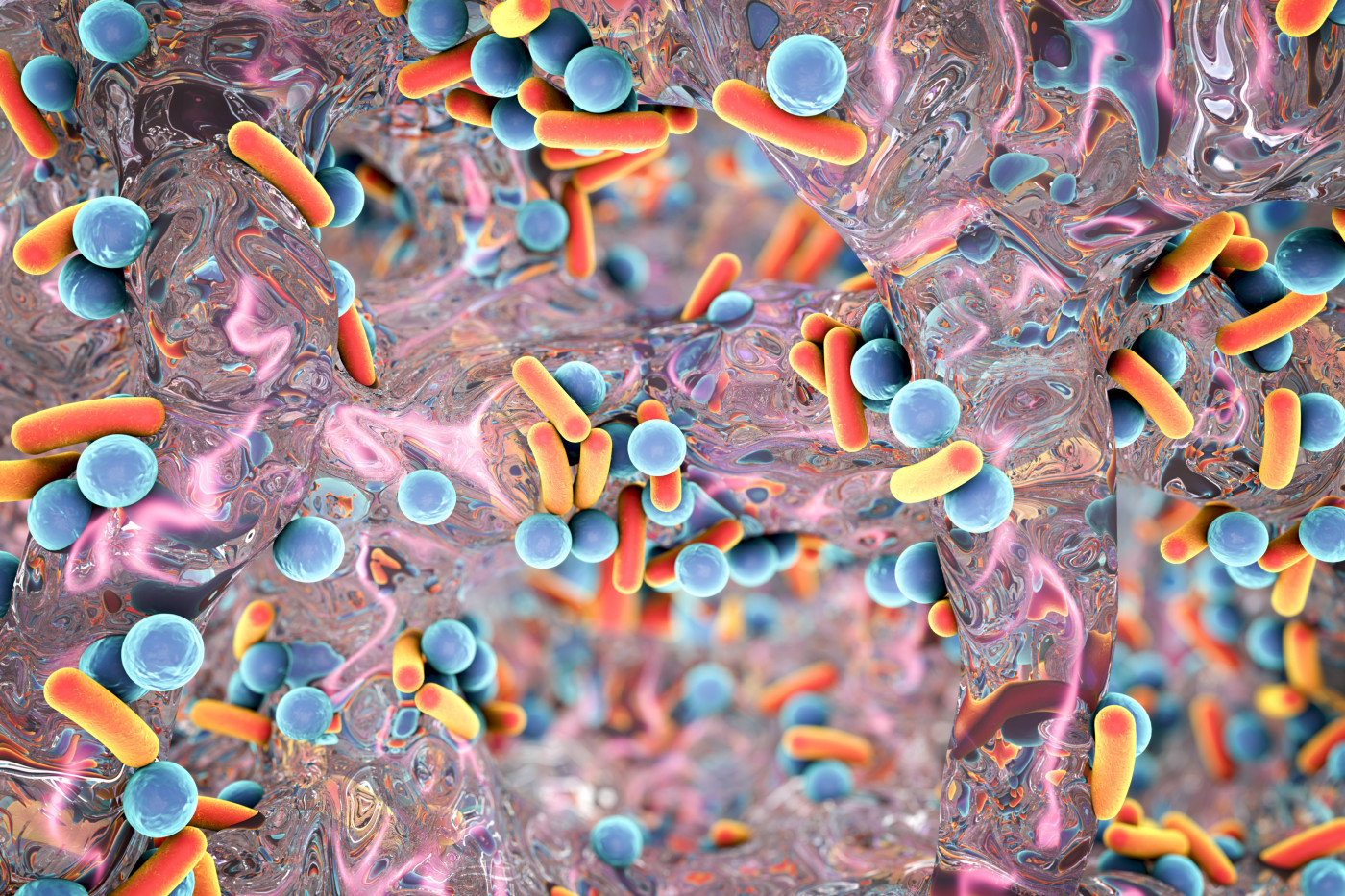Gut Microbiome May Protect PWS Patients from Insulin Resistance, Study Suggests
Written by |

The gut microbiome — the microbial community in the gut — of people with Prader-Willi syndrome (PWS) is more diverse than those of individuals with common obesity, and it may protect them from insulin resistance, a condition that often precedes type 2 diabetes, a study reports.
The study, “Gut microbiota of obese subjects with Prader-Willi syndrome is linked to metabolic health,” was published in the journal Gut.
Research suggests that the gut microbiome influences metabolism. Although PWS patients experience obesity-related comorbidities, they are partly protected against insulin resistance, i.e., when cells stop responding to insulin and cause an excess of sugar in the body. In contrast, insulin resistance is seen often in people with common (non-genetic) obesity.
However, the reasons for this protection in people with PWS remain unclear. Researchers at the University of Gothenburg in Sweden, and colleagues in France and Denmark, hypothesized that a different composition of the gut microbiota compared to people with common obesity could be an explanation.
They analyzed the gut microbiota content from fecal samples of 17 PWS patients (average age 29.4, all 16 and older) and 17 obese individuals with similar body mass index (BMI), gender, and age. Researchers also analyzed samples from 24 parents (average age 59.1) of the PWS patients, as a non-obese control group. Three of the PWS patients had type 2 diabetes.
Results revealed that the gut microbial content was more diverse in people with PWS than in those with common obesity.
In particular, the proportions of 10 specific types of bacteria were increased in PWS patients, including bacteria from the genus Akkermansia and Desulfovibrio. In contrast, bacteria from the genus Dorea were the only ones whose abundance was lower in the PWS group. Of note, genus is a rank in biological classification that is above “species” and below “family.”
“Many of the microbial genera with increased abundance in the PWS microbiota have consistently been associated with healthy metabolic profiles by several independent studies,” the researchers wrote.
In fact, the microbiome of PWS patients was more similar to that of their parents than to the one from participants with common obesity.
Researchers went on to assess whether metabolic factors could explain this different microbiome in PWS. They found that both the levels of triglycerides and insulin resistance significantly contributed to bacterial diversity, while factors such as being overweight played no role.
To demonstrate the effect of gut microbiota composition in metabolism, the investigators then transferred the bacterial content of PWS patients and obese controls to germ-free mice.
They found that transplanted mice did not show differences in fat mass or body weight, but insulin tolerance improved in mice with the PWS microbiome compared to those with the microbiome of obese individuals.
Overall, “the gut microbiota of PWS patients is similar to that of their non-obese parents and might play a role for the protection of PWS patients from metabolic complications,” the researchers wrote.
These findings suggest that the microbiome could be helping people with PWS maintain insulin tolerance. In the future, the microbiome could be a therapeutic target to improve metabolism in obesity, the team said.





